
-
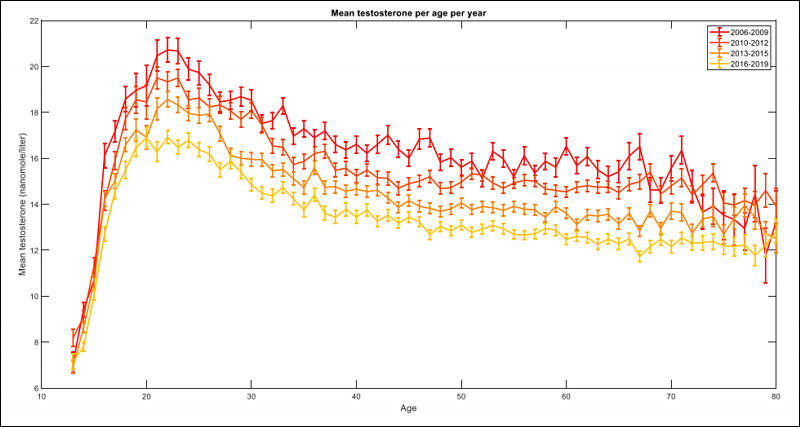
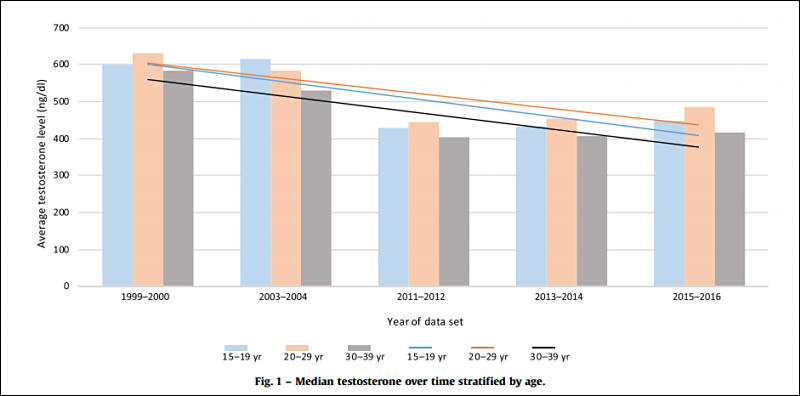
https://sci-hub.se/10.1186/s12958-020-00575-2
http://sci-hub.se/10.1016/j.euf.2020.02.006
Btw, this thing is not random, as less testosterone means higher profits for corporations, as you can push such people to work more and they spend less time on private life and are less distracted during work time. Also sperm quality has total correlation with testosterone level, 1:1.
-
You will get very clear idea on why all this war with cholesterol happened :-)
-
Note that issue is not with total testosterone, but mostly with free testosterone
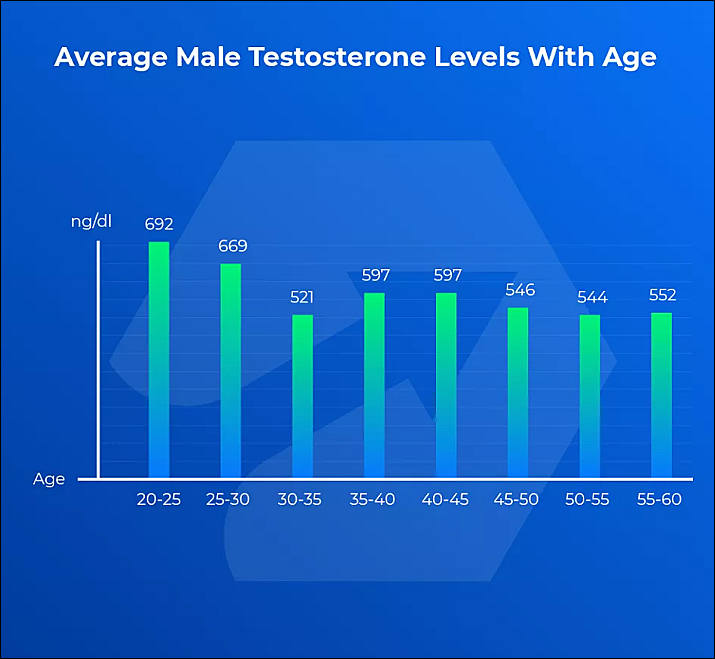
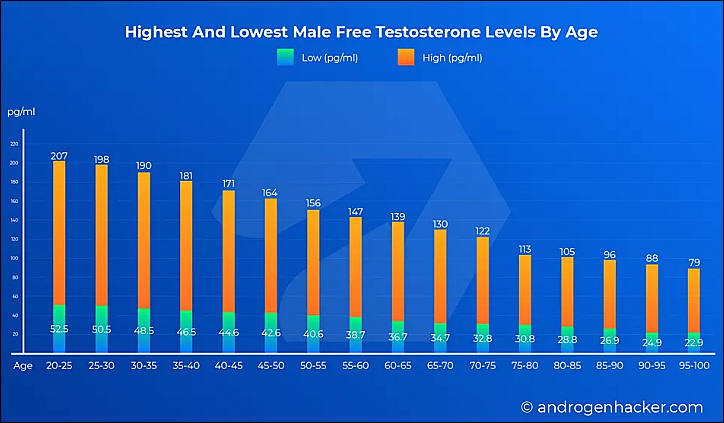

 sa18345.jpg715 x 659 - 58K
sa18345.jpg715 x 659 - 58K
 sa18346.jpg724 x 423 - 59K
sa18346.jpg724 x 423 - 59K -
More on sex issues for males
Sexual activity among young American men has declined sharply since 2000, with nearly a third reporting no sex with a partner in the prior year, according to a survey study that suggests social media and electronic gaming might be filling the void.
The survey found that from 2000 to 2018, nearly one in three U.S. men aged 18 to 24 reported no sexual activity in the past year. Lack of sexual activity, or sexual inactivity, was also on the rise among men and women aged 25 to 34 years during the survey period.
By analyzing biennial survey data between 2000 and 2018 from nearly 10,000 men and women aged 18 to 44 years, researchers found that 16.5% of respondents reported less sexual activity in 2016-2018 versus 9.5% in 2000-2002, mostly among unmarried, heterosexual men.
Sexual activity was largely unchanged among unmarried women.
“Higher income could mean more resources to search for partners and could be considered as more desirable by such partners,” study co-author Peter Ueda of the Karolinska Institute in Sweden said in an email.
Relationships for lot of males turned into long term form of prostitution.
-
Testosterone in long term relationships drops
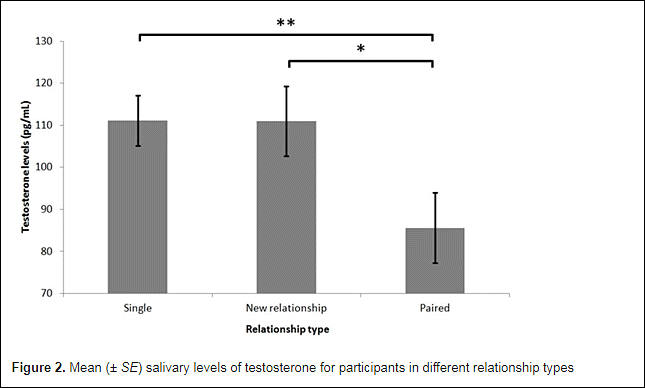
Results revealed that men in committed, romantic relationships had 21% lower testosterone levels than men not involved in such relationships. Furthermore, the testosterone levels of married men and unmarried men who were involved in committed, romantic relationships did not differ, suggesting that, at least for this sample, male pair bonding status is the more significant predictor of testosterone levels than is marital status.
“The similarity in levels of testosterone between men in new relationships and single men suggests that men in new relationships are still in a physiological state that aids competition with other men for access to potential mates,” the study authors wrote in Evolutionary Psychology.
“This may be due to the need to maintain and develop their new relationship… However, an alternative explanation for these effects may be due to the direction of causality. In other words, it may be that men with higher baseline levels of testosterone are more likely to terminate their relationships before they become long-term due to their greater propensity to seek new partners.”

 sa18374.jpg645 x 388 - 28K
sa18374.jpg645 x 388 - 28K -
Note how sperm count dynamics matches this
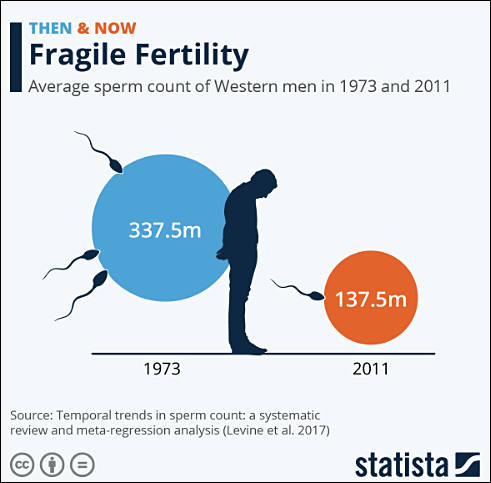
As Statista's Martin Armstring shows in the infographic below, from their 'Then & Now' series, research has revealed a 59 percent fall between 1973 and 2011 - from 337.5 million to just 137.5 million.

 sa18605.jpg491 x 483 - 33K
sa18605.jpg491 x 483 - 33K -
Most amazing here is how clear 2008 is the turning point
It seems like we are observing issues with economy and inequality just shows that men are pressured hard by opposing sex to have better income, better car, better clothing, but they can't get all this and are rejected as result.
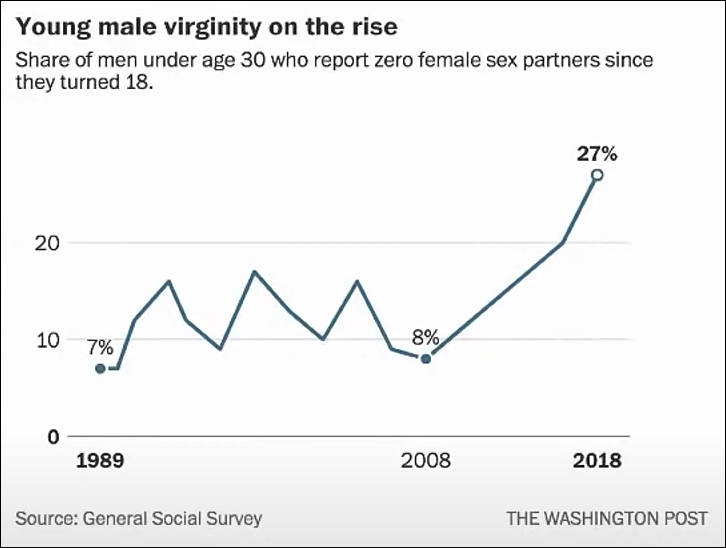
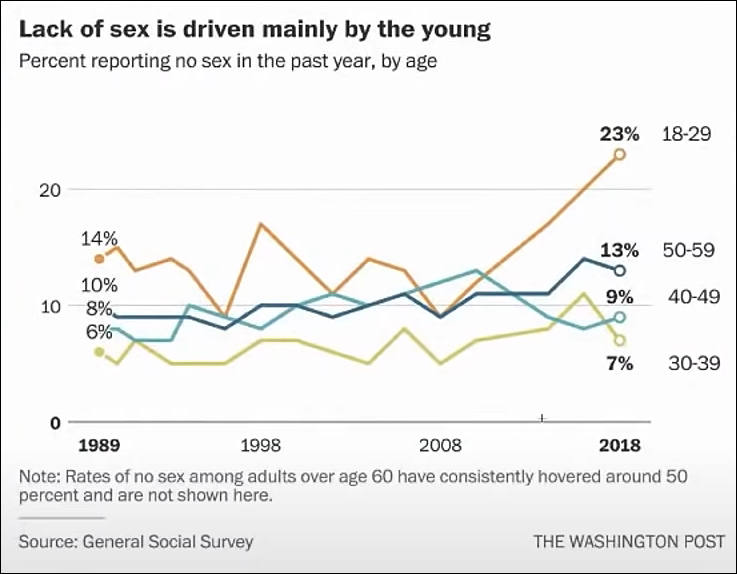
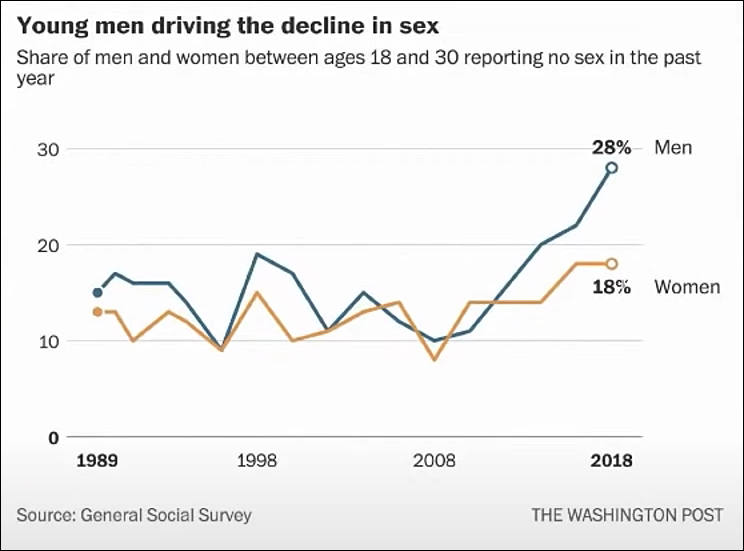

 sa18661.jpg726 x 548 - 38K
sa18661.jpg726 x 548 - 38K
 sa18662.jpg737 x 574 - 48K
sa18662.jpg737 x 574 - 48K
 sa18663.jpg744 x 551 - 41K
sa18663.jpg744 x 551 - 41K -
Parabens can act like the hormone estrogen in the body and disrupt the normal function of hormone systems affecting male and female reproductive system functioning, reproductive development, fertility and birth outcomes. Parabens can also interfere with the production of hormones. The U.N. Environment Programme has identified parabens as a group, including propyl- and butylparaben, as endocrine-disrupting chemicals or potential endocrine-disrupting chemicals (U.N. Environment 2017). The Danish Centre on Endocrine Disruptors has also identified butyl- and isobutylparaben as endocrine disruptors (Danish Centre on Endocrine Disrupters 2018).
Scientific studies have reported the estrogenic activity of parabens (Byford 2002, Kim 2011, Vo 2011, Vo 2010). The estrogenic potency increases with the length of the paraben (Blair 2000 and Vo 2010) and branching side chains also increase estrogenic activity, as observed in in vitro and in vivo studies (Darbre 2002).
In animal studies, propyl-, isopropyl- and isobutylparabens disrupted hormone signals, and exposure to all these parabens and butylparaben harmed female reproductive development (Vo 2010). In another animal study, developmental exposure to butylparaben harmed male reproduction by decreasing sperm production and lowering testosterone levels (Zhang 2014). Boberg (2016) found exposure to butylparaben during development in rats harmed both female and male reproductive systems. Sperm count was decreased at very low doses of only 10 mg/kg of body weight per day.
-
A 16-year study of US sperm donors shows that the quality of their "reproductive material" has been steadily declining, possibly due to increased chemical exposure and lifestyle changes.
Scientists examined over 170,000 analyzes carried out between 2005 and 2021. Everything from healthy men aged 19-38. And they found out that the quality of their germ cells during this time fell by at least a third. As a result, 10% more men can now be considered infertile.
And this is not a single analysis that showed such a result. A 1992 study found that the number of active sperm in men had decreased by 50% over the past 60 years. It was hard to believe in this, and in the following years several checks were carried out, which confirmed this sad result. Separately, it is worth citing a large publication in 2017 showing a 50-60% decrease in sperm concentration between 1973 and 2011 in men around the world. That is, the reproductive potential of the male half of the population has become two times less in just forty years.
-
The world’s largest maker of condoms hasn’t been spared from the coronavirus pandemic as the use of its products slumped as much as 40% in the last two years.
Sexual activity using the contraceptive didn’t increase even as people stayed home amid lockdowns to curb the spread of the virus, Nikkei Asia reported, citing Karex Bhd.’s Chief Executive Officer Goh Miah Kiat.
Karex had previously forecast condom demand to grow at “double digits” as governments around the world imposed lockdowns, forcing people to stay at home. Karex produces for brands like Durex, as well as its own line of specialty condoms such as Durian-flavored ones. It churns out more than 5 billion condoms a year and exports them to more than 140 countries.
One big thing went unnoticed - due to shift to online condom sales it is much cheaper brands who are growing fast.
-
Already after a quarter of a century, people may lose the ability to procreate: most men by that time are at risk of losing viable spermatozoa. This was stated by the leading American specialist in reproductive health, Shanna Swan. The reason for this is widespread chemicals.
A few years ago, Swan estimated that since 1973, sperm counts in Westerners have fallen by almost 60%. Then it caused a wave of high-profile publications about the impending "spermageddon". Now the researcher paints an even bleaker picture: according to current projections, the number of germ cells in men will approach zero in 2045. This means that half of the representatives of the stronger sex will not be able to give offspring at all, and the other half will be very close to such a state.
According to Swan and other scientists, fertility problems are directly related to the so-called endocrine disruptors - chemicals that mimic the body's hormones and thus trick our cells. Compounds such as bisphenol A and phthalates interfere with the normal functioning of hormones, including testosterone and estrogen. They pose a particular danger even in small doses to the developing fetus. These chemicals are everywhere: in plastics, electronics, personal care products, cosmetics, canned foods, and even on grocery receipts. Phthalates, for example, are used in the manufacture of plastic water containers, and bisphenol A is used in the production of polycarbonate. A study conducted by French scientists confirmed the presence of bisphenol A in the urine of more than 90% of the world's population. And the German Federal Environment Agency found traces of it in the body of 591 out of 599 children examined.
Some of these substances do not break down either in the human body or in the environment. As a result, according to experts, each new generation is born with a lower level of fertility. “Today, the average 20-year-old girl is less fertile than her 35-year-old grandmother. For men, chemicals not only reduce sperm count, but also reduce the size of the penis. This is a serious threat to future generations and all of humanity as a whole,” says Swan.
There is still hope, however. In 2017, a study was conducted in which male mice were exposed to estrogenic chemicals shortly after birth, but were never exposed to them again. As a result, the sperm count in rodents was fully restored after three generations. “Of course, three generations for people is quite a long period. Therefore, it is better for us to hurry up and take some measures, ”the expert concluded.
-
Remember - if possible it is always better to make it natural. Add physical activity, more sex, better girls around you.
TRT will lead to extreme drop of your natural testosterone production.
-
Battle with cholesterol also resulted in issues with testosterone:
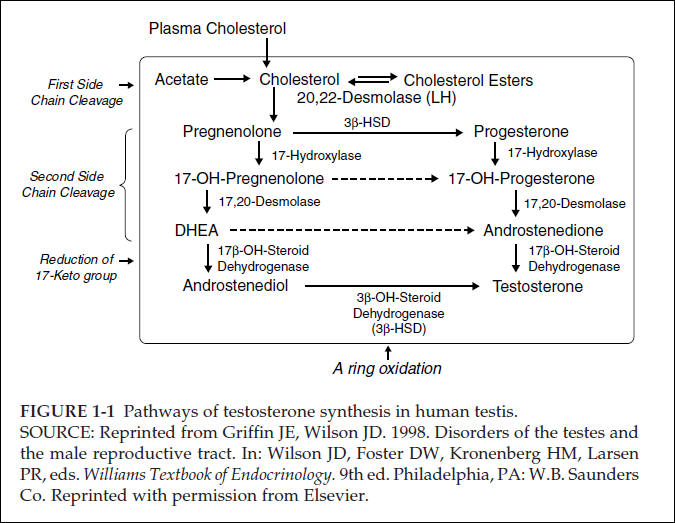

 sa7147.jpg675 x 523 - 84K
sa7147.jpg675 x 523 - 84K
Howdy, Stranger!
It looks like you're new here. If you want to get involved, click one of these buttons!
Categories
- Topics List23,980
- Blog5,725
- General and News1,352
- Hacks and Patches1,152
- ↳ Top Settings33
- ↳ Beginners255
- ↳ Archives402
- ↳ Hacks News and Development56
- Cameras2,362
- ↳ Panasonic992
- ↳ Canon118
- ↳ Sony156
- ↳ Nikon96
- ↳ Pentax and Samsung70
- ↳ Olympus and Fujifilm100
- ↳ Compacts and Camcorders300
- ↳ Smartphones for video97
- ↳ Pro Video Cameras191
- ↳ BlackMagic and other raw cameras115
- Skill1,960
- ↳ Business and distribution66
- ↳ Preparation, scripts and legal38
- ↳ Art149
- ↳ Import, Convert, Exporting291
- ↳ Editors191
- ↳ Effects and stunts115
- ↳ Color grading197
- ↳ Sound and Music280
- ↳ Lighting96
- ↳ Software and storage tips266
- Gear5,417
- ↳ Filters, Adapters, Matte boxes344
- ↳ Lenses1,580
- ↳ Follow focus and gears93
- ↳ Sound498
- ↳ Lighting gear314
- ↳ Camera movement230
- ↳ Gimbals and copters302
- ↳ Rigs and related stuff273
- ↳ Power solutions83
- ↳ Monitors and viewfinders340
- ↳ Tripods and fluid heads139
- ↳ Storage286
- ↳ Computers and studio gear560
- ↳ VR and 3D248
- Showcase1,859
- Marketplace2,834
- Offtopic1,319





